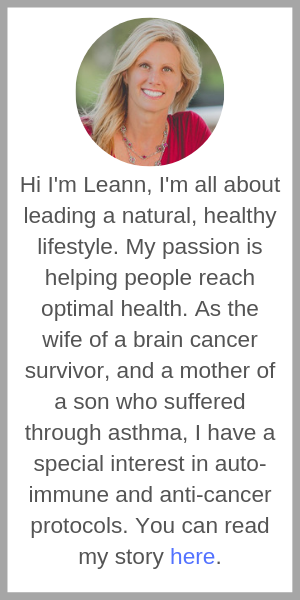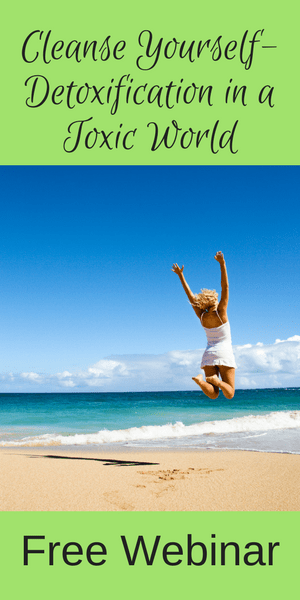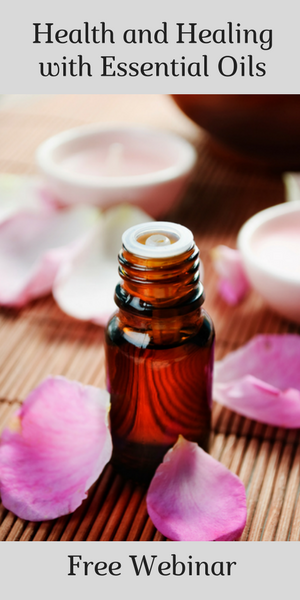The Truth About Cancer That Your Doctor Won’t Tell You
When it comes to cancer, the amount of misinformation out there is astonishing.
For example, did you know that only about 5% of all cancers are caused by inherited faulty genes? It’s true and I’m guessing that at some point your doctor asked about your family’s cancer history. Or perhaps you were even approached to get some genetic cancer testing done (right after the rep for the genetic testing company took your doctor out to a fancy dinner).
Also – and this is where cancer gets controversial – curing cancer does not make pharmaceutical companies (or cancer doctors) any money. More than 1,500 people per day are diagnosed with cancer and the costs are over $260 billion per year.
So when that dreaded cancer diagnosis come in, many people think it’s a matter of bad luck, so they listen to their doctor and think that’s their only option. I am here to tell you, as a cancer coach and wife of a brain cancer survivor, that this is not the case.
Microbes and Cancer
Microbes are the leading cause of cancer. Yes, everything else I discuss here contributes to putting our bodies at risk for cancer (and other serious illness), but microbes are the actual cause.
The difference between a cancer cell and healthy cell is how the cell uses respiration. A healthy cell will respirate using oxygen; this is an aerobic process. On the contrary, cancer cells thrive in a non-oxygenated environment, which is an anaerobic process called glycolysis. There are many toxins and microbes that we are exposed to that can change the respiration of a cell and convert it from aerobic to anaerobic.
Pathogenic microbes (microscopic organisms) can change the respiration of a healthy cell and convert it to a cancer cell. They also are capable of evading the immune system and triggering inflammation, allowing cancer to spread. “Scientists and researchers are leading efforts to better understand how microbes can be controlled and used to develop better methods of therapy and possibly even prevent cancer from developing in the first place.”
Note: if you have cancer and are wondering if microbes are playing a role, I always recommend that my clients “test, don’t guess”. Click here for more information on lab testing.
Epigenetics
Epigenetics is the study of genetic effects that are NOT encoded in our DNA. By studying epigenetics, researchers have found that there are external or environmental factors that affect the cells in our body. They have also found that it is entirely possible that an epigenetics change may initiate cancer.
Some factors that play a role in epigenetics include:
- Aging – certain cell tissues have a tendency to become unstable as you age. And over time, things in our environment can damage our DNA.
- Diet – nutrition actually supplies your DNA and if you aren’t feeding your cell the nutrients they need, they can become damaged.
- Environment – toxins have a greater affect on your DNA than you think.
In the beginning of this century, Nobel Prize winner, Dr. Otto Warburg discovered that cancer was caused by sugar replacing oxygen in the body’s cells. He was quoted as saying,
Cancer, above all other diseases, has countless secondary causes. But, even for cancer, there is only one prime cause. Summarized in a few words, the prime cause of cancer is the replacement of the respiration of oxygen in normal body cells by a fermentation of sugar.
Later in his research Dr. Warburg came to discover that pollution also contributed to cancer. Before him, French scientist, Antoine Bechamp, believed that cancer was caused by a combination of toxins and unhealthy cells. And currently, Dr. Thomas Seyfried of Boston College, has researched cancer as a mitochondrial disease and not a genetic disease. Dr. Seyfried’s theory implies that cancer cells can be weakened and killed by a lack of glucose, and therefore a patient needs to give up all carbohydrates and live on fats and proteins.
What does this all mean for you? It means that you have more control over preventing and fighting cancer than you thought.
Toxins and Cancer
As we age, time, stress and inflammation from toxins lead to instability in cells. We already know that toxins destroy the biochemistry of our body’s cells. Now when I speak of toxins, I’m including:
- Radiation
- Vaccines and other medicine
- Pesticides
- Insecticides
- Chemicals
- Processed food
- Plastics
Human biomonitoring studies have found that some of the above mentioned environmental contaminants can be carcinogens. And we already know from the IARC (International Agency for Research on Cancer) that arsenic, asbestos, benzene, BPA and formaldehyde are all carcinogens.
Nutrients and Cancer
So the obvious way to prevent cancer is to avoid any of the above. Which is ideal, but studies have shown that nutrients can repair the damage that toxins may have already done to your cells. Nutrients like vitamin C and E, and the trace mineral selenium are the first line of defense. For colon cancer, probiotics are recommended and for skin cancer, vitamin D.
The following table from Life Extensions explains specific nutrients and the cancers they affect:
Nutrient | Cancers Affected* |
Carotenoids (lutein, astaxanthin, lycopene) | Prostate, colon |
Coenzyme Q10 | Colon, head-and-neck |
Fish oil (omega-3 fats) | Colon, skin |
Genistein (from soy) | Leukemia |
Plant polyphenols | Multiple |
Probiotics (Lacto-bacillus rhamnosus) | Colon |
Quercetin | Head-and-neck |
Selenium | Colon, breast |
Vitamin C | Breast, colon, skin |
Vitamin D | Colon, skin |
Vitamin E | Liver, breast |
*These are only a few of the types of cancers affected by these nutrients
Below are more lifestyle changes that will decrease your risk of cancer:
- Not smoking
- Maintain healthy weight
- Drink alcohol in moderation
- Eat a healthy, balanced diet
- Exercise regularly
- Wear sunscreen
- Avoid toxins
- Use essential oils
Essential Oils
So you may be asking yourself how essential oils fit in here. I have previously discussed my favorite essential oils and explained how they aren’t the newest “fad” that people may think. Oils can actually affect the biochemistry of our cells.
Because they are so small, essential oils can enter into our body through our skin and can pass through cell walls. While there, the oil is able to treat diseases that are within the cell itself and/or repair the cell itself. This is why we incorporated essential oils to play a role in my husband’s recovery from brain cancer.
Fun fact – antibiotics cannot pass the cell wall and can only treat bacteria on the surface of the cell.
The bottom line is that healthy living is not a guarantee that you’ll NEVER get cancer. But it stacks the odds in your favor, by reducing the risk of developing the disease.
Click here to get my free report, “37 Cancer Facts You Should Know…But Probably Don’t.
 |
Disclosure: this post contains affiliate links.
 Login
Login







